Milestones on our journey
For two decades CMI has been working to prevent and resolve violent conflicts in the world. Those 20 years have included multiple projects, several regions and many committed staff members. CMI’s timeline shows milestones from the past 20 years, starting from the year 2000 when CMI was established.
2000
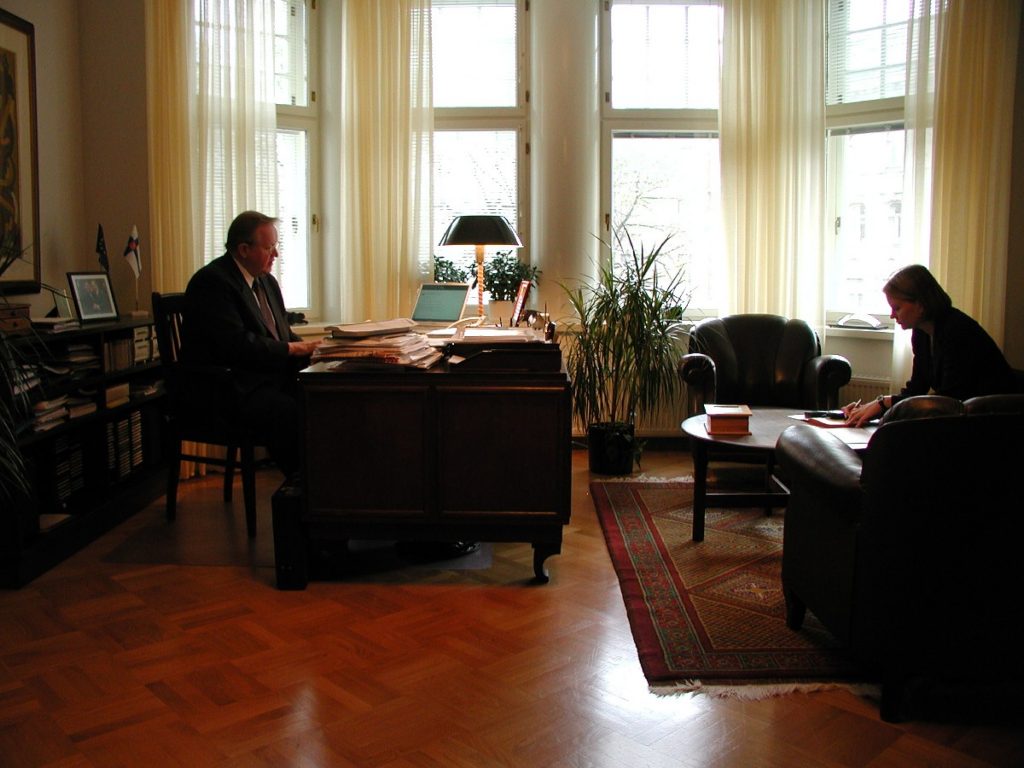
President Ahtisaari in his office at Pieni Roobertinkatu in Helsinki, Finland.
President Martti Ahtisaari established CMI in March 2000 after his term in office ended. He declined the post of United Nations High Commissioner for Refugees because he wanted to focus instead on addressing the root causes of conflict. President Ahtisaari wanted CMI to be a place where young people could grow professionally to become experts in peace mediation. President Ahtisaari’s long-term vision for CMI was to contribute as effectively as possible to solving violent conflict throughout the world. During its first six months, CMI continued in many ways as a smaller version of the Office of the President of the Republic.
In May, the British Government appointed Ahtisaari and South African politician Cyril Ramaphosa to head the inspections of Irish Republican Army (IRA) weapons dumps in Northern Ireland.
2001
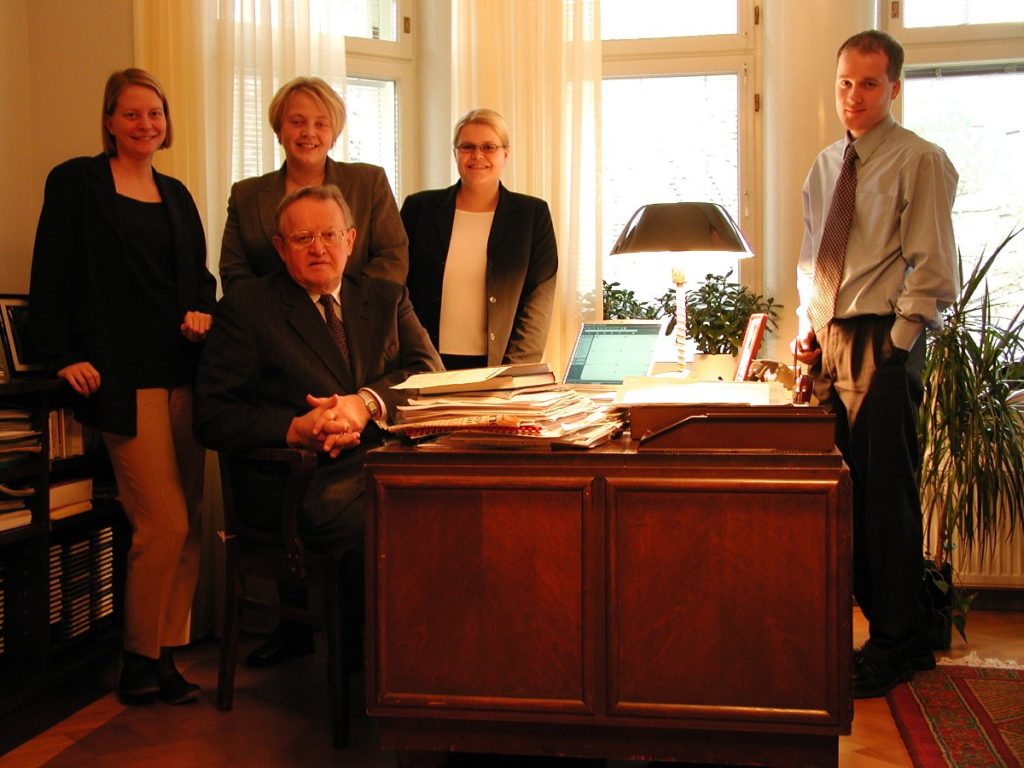
President Ahtisaari with the first employees of CMI: Minna Järvenpää, Kristiina Rintakoski, Meeri-Maria Jaarva and Antti Pentikäinen.
The change from the Office of President Ahtisaari towards the independent CMI was initiated, and CMI started its own projects. The first was a study on training for civilians participating in crisis management operations. During its first years, CMI’s work was mainly focused on crisis management and information technology, with the start of the Information Technology and Crisis Management (ITCM) project in this year.
2002
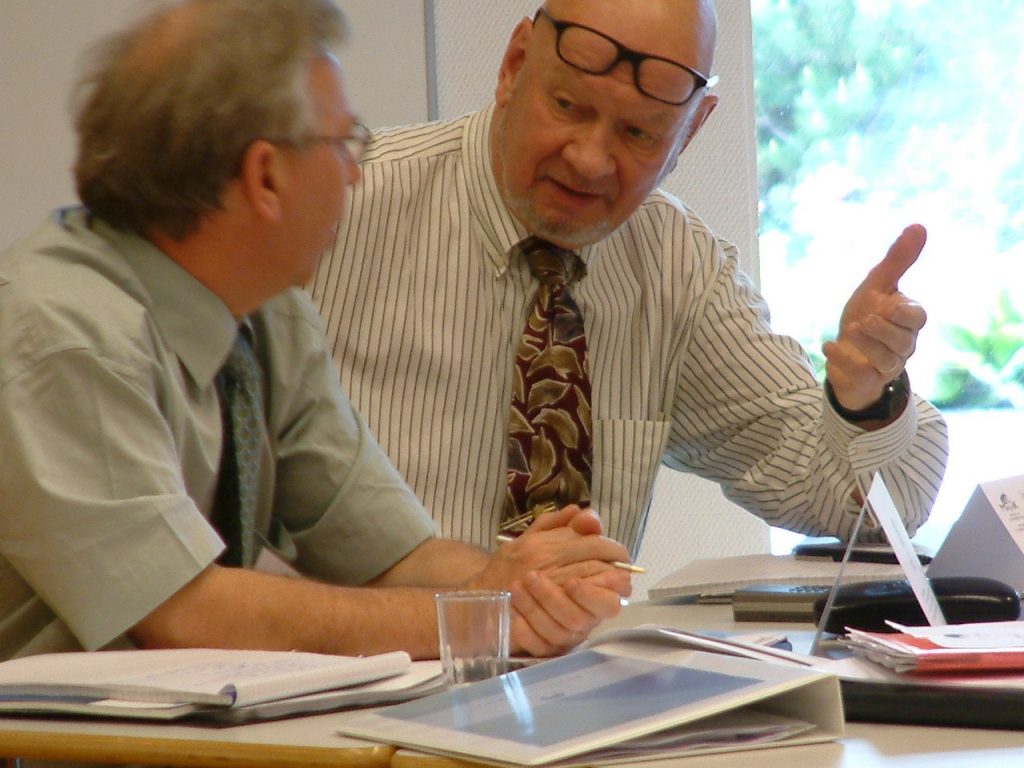
On the right, Jaakko Iloniemi, the first Executive Director of CMI.
CMI’s workload started to grow, and the organisation needed someone to lead its day to day running and to represent its publicly in addition to Ahtisaari. Finnish diplomat Jaakko Iloniemi became CMI’s first Executive Director.
CMI also became the secretariat of the Helsinki Process on Globalisation and Democracy, a joint initiative of Finland and Tanzania to search for new and empowering solutions to the dilemmas of global governance. The process offered a forum for open and inclusive dialogue between various stakeholders.
2003
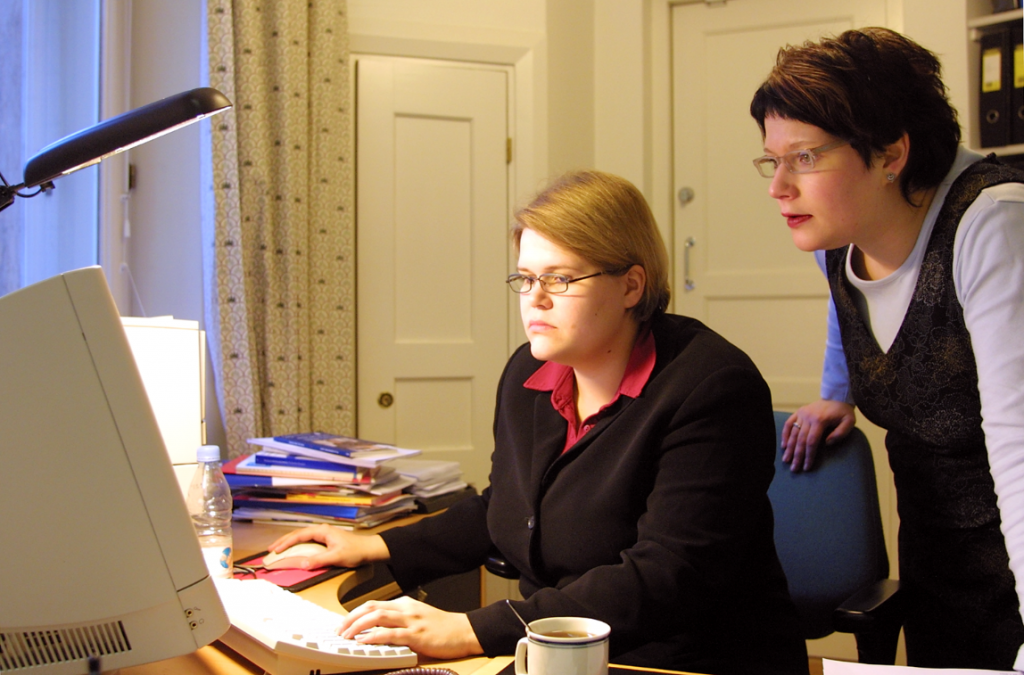
Meeri-Maria Jaarva and Pauliina Arola at CMI office.
CMI’s focus areas were starting to diversify, and these two initiatives covered CMI’s programmatic priorities relatively well. Projects that in 2003 were grouped as the Crisis Management Capabilities programme had started to be geared towards enhancing the international community’s, especially civilian organisations’, professionalism and capacity in crisis management. The Globalisation and Global Governance programme was broader, covering issues ranging from development finance to global justice.
2004
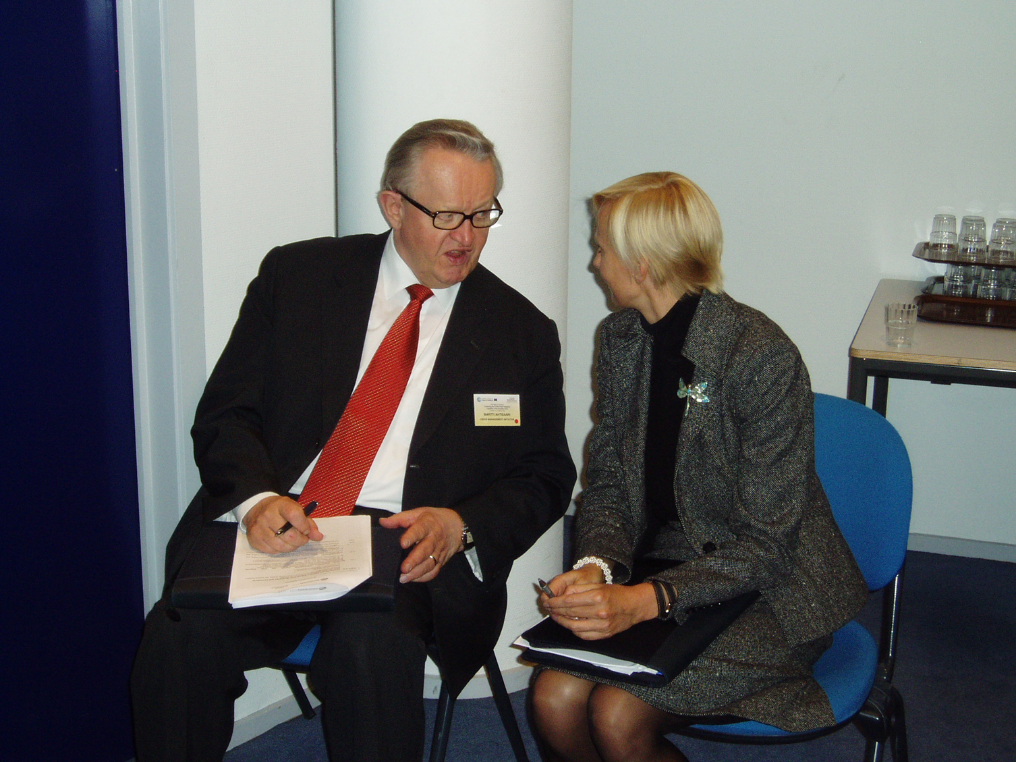
President Ahtisaari and Antje Herrberg, who managed the Brussels office.
CMI opened an office in Brussels. Brussels was chosen as the location of CMI’s first office outside of Finland because of the EU’s growing importance as a partner in many of CMI’s projects and the need to be on spot for more effective advocacy.
CMI moved to bigger premises and recruited more staff as the projects grew in size and Helsinki Process needed more resources.
2005
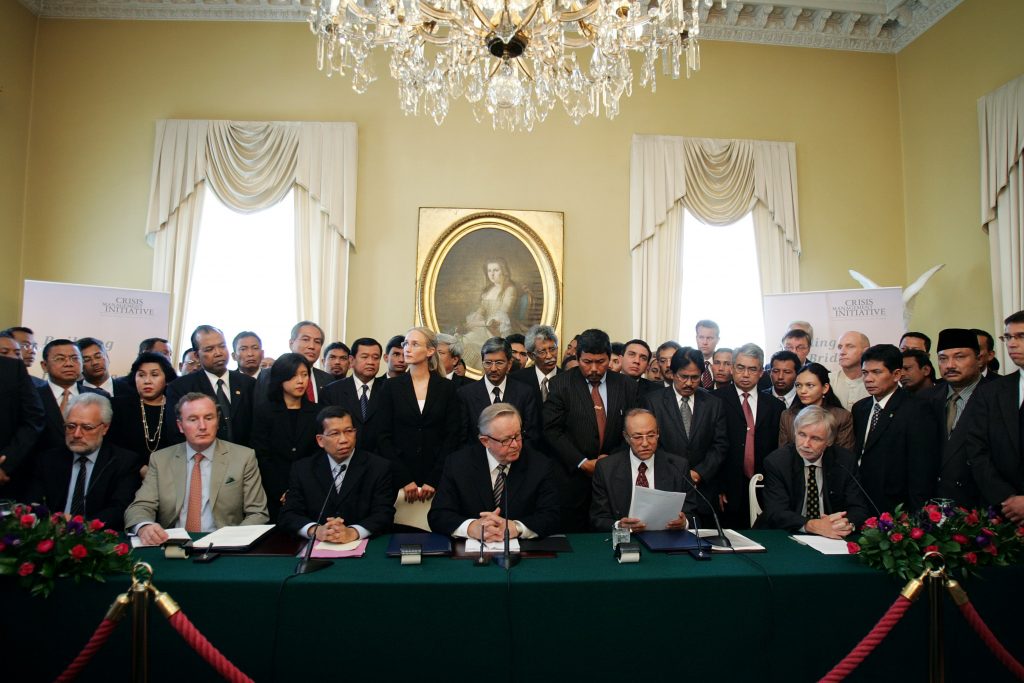
Signing of the Aceh peace agreement in Helsinki, Finland.
CMI and its Chairman Martti Ahtisaari were asked to facilitate talks between the Government of Indonesia and the Free Aceh Movement (GAM). The Aceh peace talks had their first round in January in Helsinki. The peace agreement was signed on 15 August 2005. It brought an end to almost three decades of conflict between the Government of Indonesia and the Free Aceh Movement (GAM).
The Helsinki Process on Global Governance and Democracy culminated in a large international conference in September, held under the title Mobilising Political Will. The conference included thematic seminars, key dialogues and roundtable discussions aimed at generating political will and new types of coalitions to implement fairer globalisation.
2006
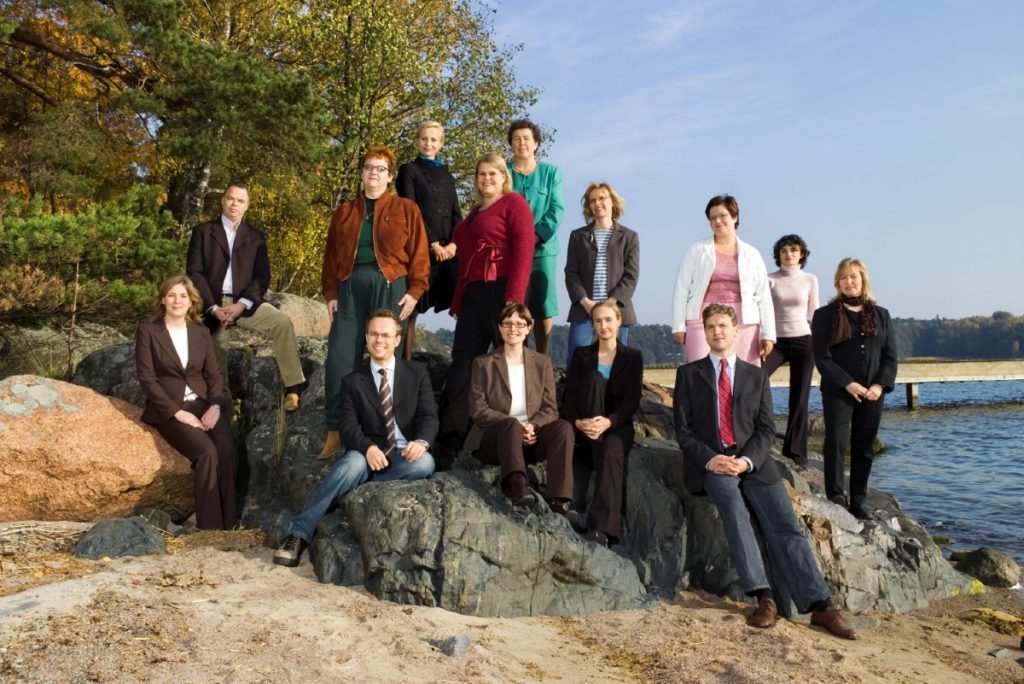
CMI recruited more staff as the projects grew in size.
CMI devoted greater resources to professionalize its work and shifted from responding to ad hoc requests to establishing more robust organizational structure including drafting CMI’s first strategy. The process involved the whole staff and the board. According to the strategy, CMI’s work would focus on crisis management and conflict resolution, the two programmes that CMI’s projects and activities were structured around. The conflict resolution work emphasised peace support and mediation as well as the quality of peace processes.
2007
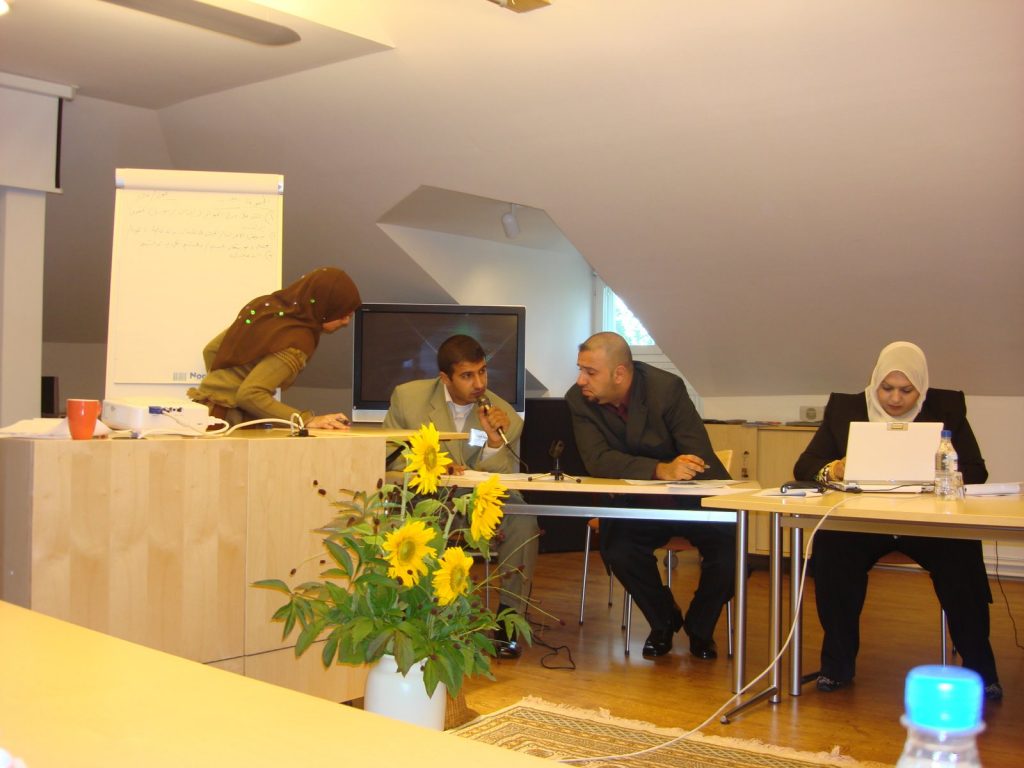
Iraq meeting in Finland.
CMI invited Iraq’s Shia and Sunni leaders to a meeting in Finland to agree on a road map for peace. The meeting was hosted by President Ahtisaari, Cyril Ramaphosa and the deputy First Minister of Northern Ireland Martin McGuinness.
2008
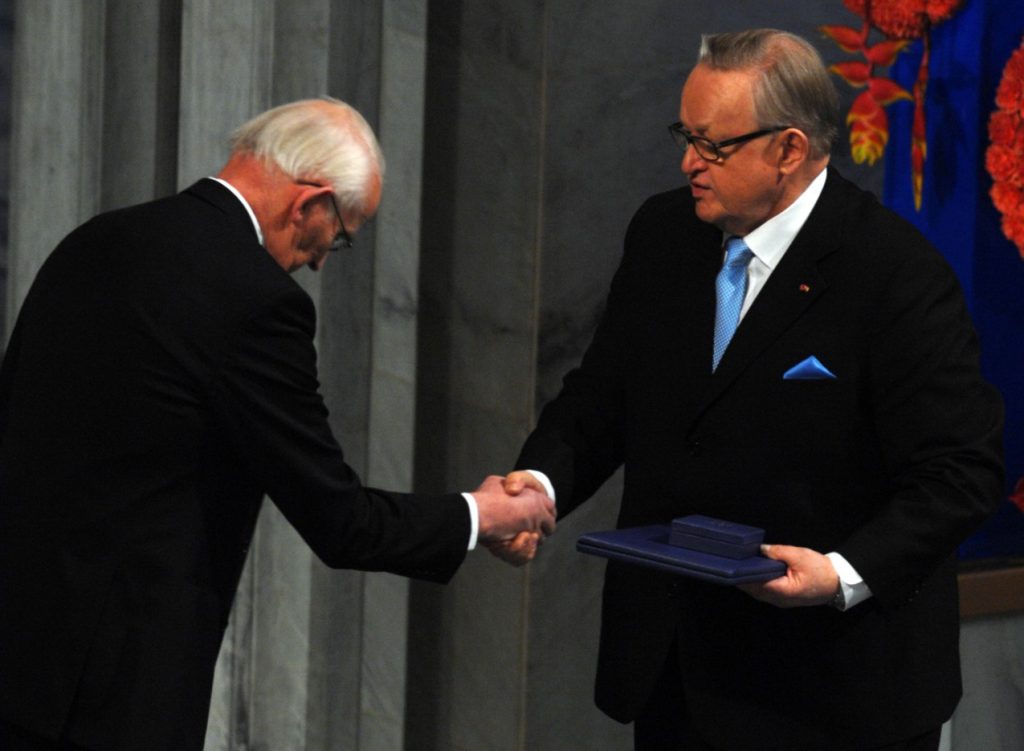
The Nobel Peace Prize Award Ceremony in Oslo, Norway.
President Ahtisaari was awarded the Nobel Peace Prize for, as the Nobel Committee’s citation states, “his important efforts, on several continents and over more than three decades, to resolve international conflicts” – which included his leading role in bringing independence to Namibia, Serbia’s withdrawal from Kosovo, and autonomy for Aceh in Indonesia.
2009
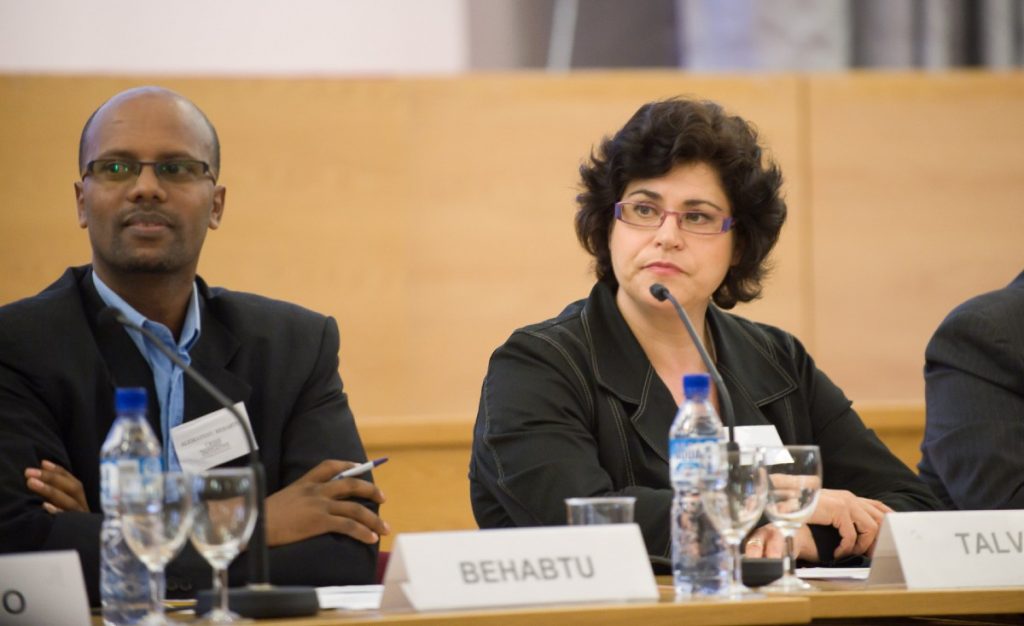
CMI’s former Executive Director Tuija Talvitie, on the left Alex Behabtu.
Tuija Talvitie became the Executive Director of CMI. Talvitie was a member of the CMI board from 2006 to 2009. In autumn 2009, she was appointed as CMI’s Executive Director. When she joined the management of CMI the organisation was small on an international scale and struggling with the financial challenges this posed. Under her leadership, CMI evolved into one of the most respected conflict resolution organisations internationally.
CMI continued to expand its work by establishing regional teams and recruiting local staff. This programmatic change served as a starting point for many new projects in the coming years.
One of these new projects was in Ukraine, where CMI supported Ukraine’s expert community in building a network of experts to work on conflict prevention and peace building in the Black Sea Region.
CMI started working in the South Caucasus region, facilitating a multi-track dialogue process.
CMI started working with the African Union. Since 2009, it has worked with the AU’s Peace and Security Department and the African Centre for the Constructive Resolution of Disputes (ACCORD) to improve the AU’s capacity to respond to conflicts through preventive diplomacy and peace mediation.
2010
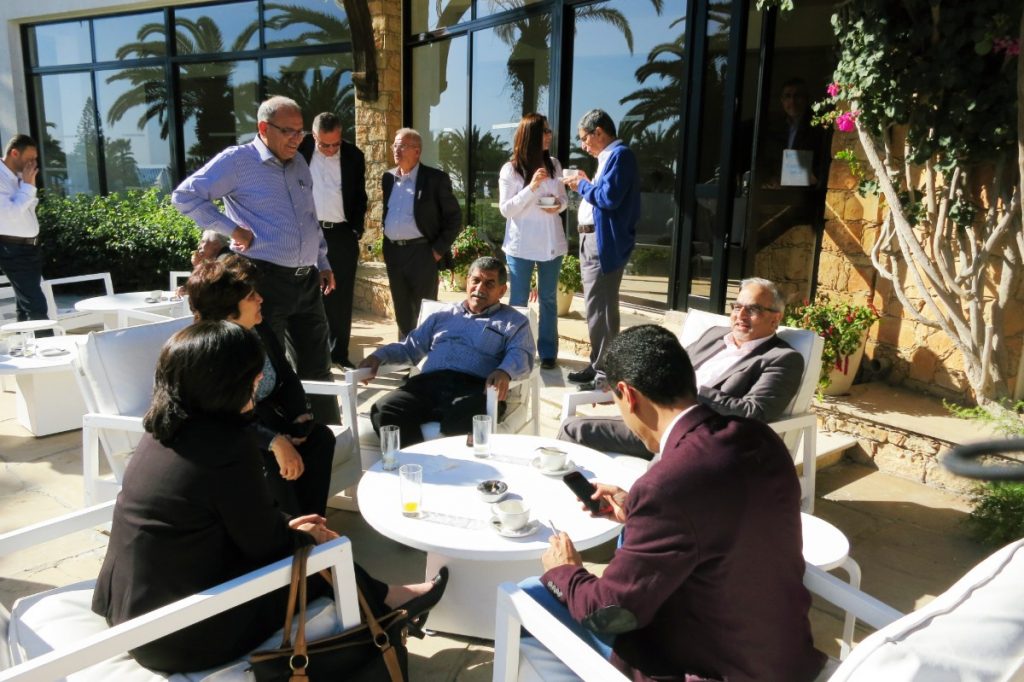
In 2016, CMI with its Palestinian partner Masarat brought together a group of Palestinian actors from the different Palestinian communities to discuss how they could create opportunities for Palestinians to be involved in reconciliation.
CMI started working in Palestine. Since 2010, CMI has worked to support dialogue among Palestinian actors. Together with its partner Masarat, CMI has sought to develop practical mechanisms and instruments that could support sustainable national unity.
CMI started its work in Moldova by supporting the Transdniestrian settlement process on several levels, particularly by focusing on confidence building across the conflict divide.
CMI acted as a secretariat for the Kyrgyzstan Inquiry Commission (KIC) from 2010 to spring 2011. The KIC was headed by former Finnish parliamentarian Kimmo Kiljunen. In 2011, the KIC released a report that probed the 2010 inter-ethnic violence in Kyrgyzstan and urged the country’s government to act quickly on its recommendations.
2011
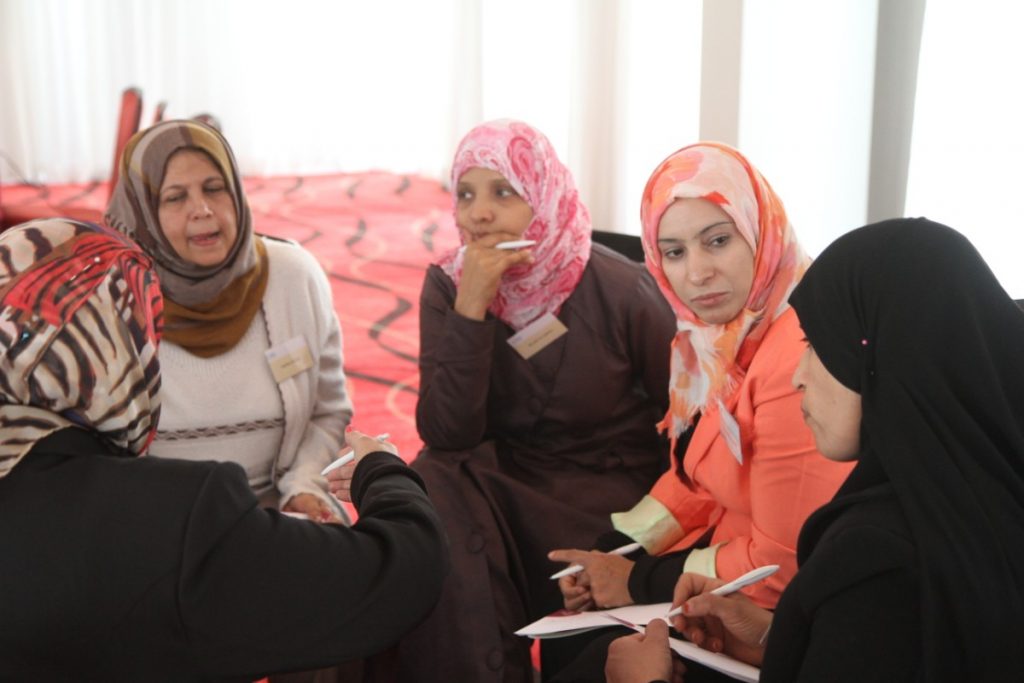
Yemen Women’s Forum was organized in Istanbul in 2013.
CMI started working in Yemen, to support a successful political transition. The country had a UN-supported national dialogue on the future of the country. CMI supported key actors to informally discuss critical issues parallel to the national political process.
The first Ahtisaari Days were held in Oulu. The idea for the Ahtisaari days was first suggested in 2008 by a working group put together by Foreign Minister Alexander Stubb to renew Finland’s image. The group’s final report contained the suggestion for the Ahtisaari Days, which would be held in honour of the former President. The event would be held every year, and would be jointly organised by the Ministry for Foreign Affairs and CMI. Since 2011, the Ahtisaari Days have been held annually, with the aim of bringing conflict resolution to every school in Finland.
2012
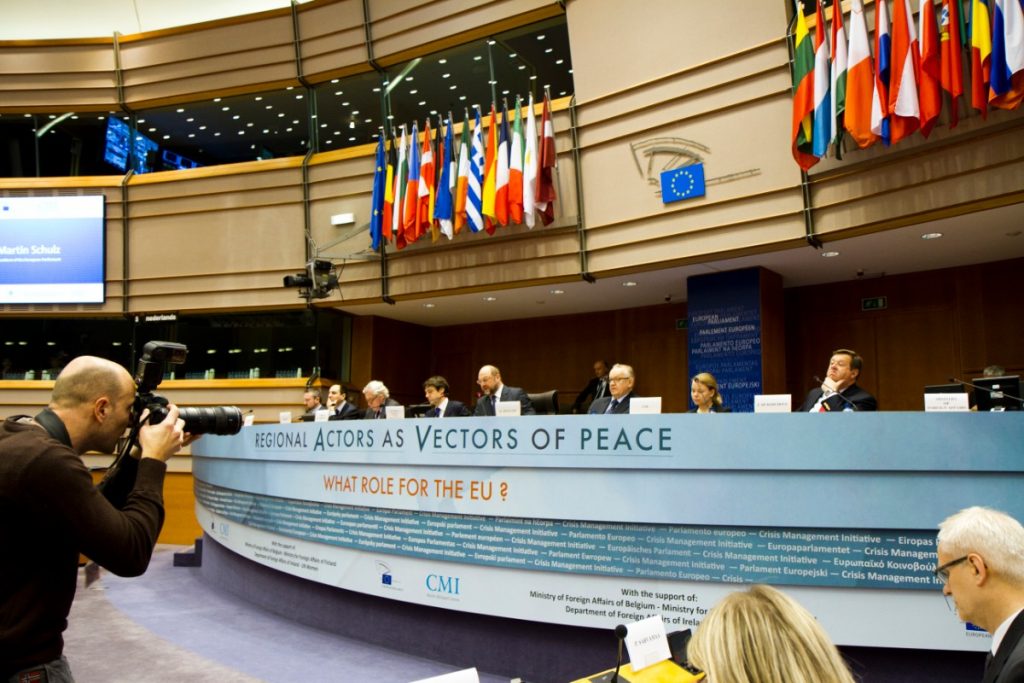
EU is an important partner for CMI. In 2012, CMI organized a seminar “Regional Actors as Vectors of Peace” at the European parliament.
As part of its cooperation with the European Union, CMI and the European Parliament held a high-level seminar on the role of the EU as a regional actor on peace. The seminar brought together top mediators, including President Ahtisaari, Lakhdar Brahimi, Margaret Vogt and Alvaro de Soto as well as practitioners from conflict settings around the globe (Aceh, Uganda, Sri Lanka, Malaysia, Sudan, Palestine). The event was attended by some 600 people, including representatives of EU institutions and Member States as well as peer organisations. This remains one of the biggest events CMI has organised.
CMI’s follow-up project on the implementation of the Aceh peace process ended in 2012. The Aceh Peace Process Follow-up project supported communications between the different stakeholders to strengthen the peace process and find means of resolving the unimplemented parts of the peace agreement. In many ways, peace has given Aceh a new lease of life. Poverty and unemployment have declined sharply since the peace agreement came into effect.
2013
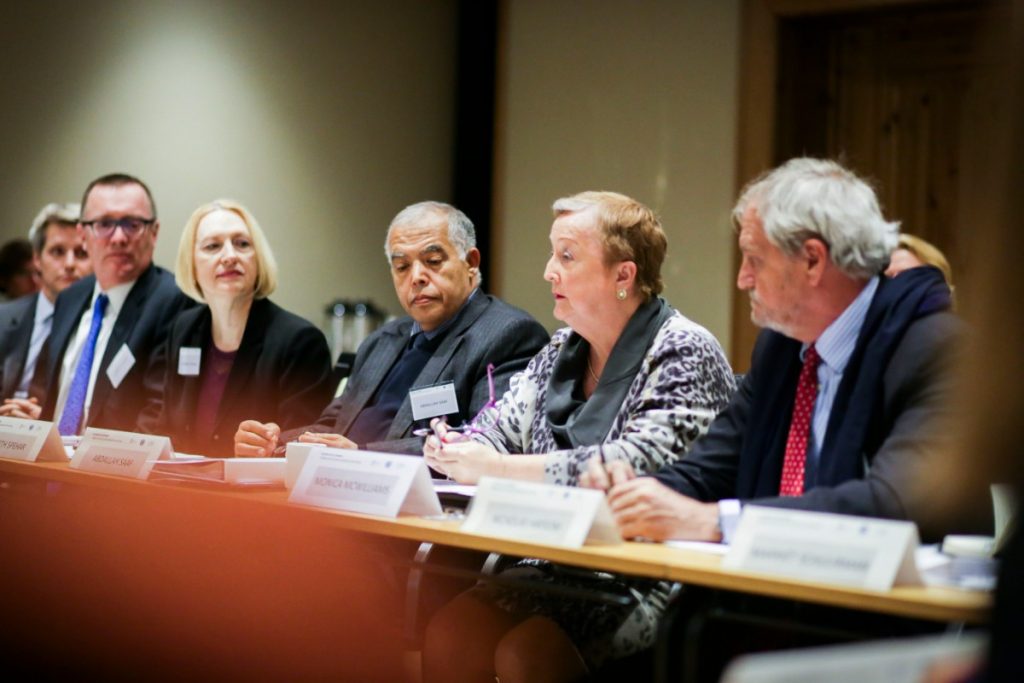
Monica McWilliams in the high-level seminar in 2014.
The first UN High-Level Seminar on Gender and Inclusive Mediation Strategies took place in Oslo. The seminars are run in partnership between CMI, Department for Political and Peacebuilding Affairs (UN DPPA) and the Peace Research Institute Oslo (PRIO), and are funded by the Foreign Affairs Ministries of Finland and Norway. The seminar is a forum for leading peace mediation actors to discuss experiences, challenges and practical ‘how-to’ strategies on women’s inclusion in the design and implementation of peace processes.
CMI organised the launch of the UN Guidance for Effective Mediation in Brussels discussing how the guidance would translate into the EU practice of mediation. The high-level event gathered inputs from President Ahtisaari, Mary Robinson, Helga Schmidt as well as EU and UN representatives.
CMI successfully established a Consortium of peer organisations to lead the European Resources Mediation Support (ERMES) action aimed at facilitating EU support for third parties engaged in inclusive peace mediation and dialogue at international, regional and local levels as well as providing technical assistance and training. This was one of the first mediation support programmes of the European External Action Service (EEAS) since its establishment in 2010.
2014
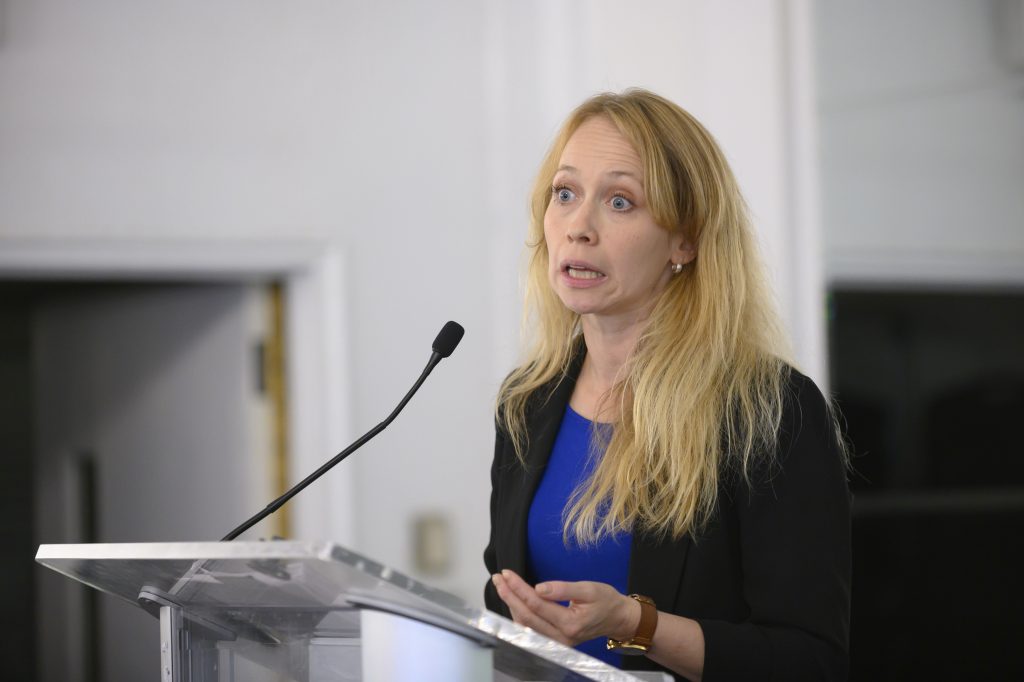
Johanna Poutanen, Head of Women in Peacemaking team, at the meeting of Global Alliance of Regional Women Mediator Networks in 2019. Photo: Howard Heyman.
The Gender and Inclusion team was established at CMI. This was later renamed Women in Peacemaking. Gender equality and inclusivity are CMI’s core operating principles. CMI highlights the indispensable role of women in building and sustaining peace, and aims to widen the space for women to participate in peace processes.
CMI started working in Libya to support an inclusive and peaceful transition process in the country. CMI facilitates national- and local-level dialogue among the relevant stakeholders, including political parties, civil society organisation and tribal entities to jointly tackle the root causes of tension and conflict.
CMI was granted a programme partnership with the Ministry for Foreign Affairs of Finland early in the year.
CMI started facilitating high-level expert dialogue between political representatives and other influential public figures in Ukraine.
CMI provided assistance concerning the crisis in the Central African Republic to the Economic Community of Central African States’ (ECCAS) mediation expertise through capacity building, logistical support and human resources.
CMI’s involvement in supporting peace efforts in the Great Lakes region by providing informal platforms for dialogue began. Since then, CMI has been facilitating efforts to nurture trust and spaces for informal internal dialogue between Burundian principal parties.
2015
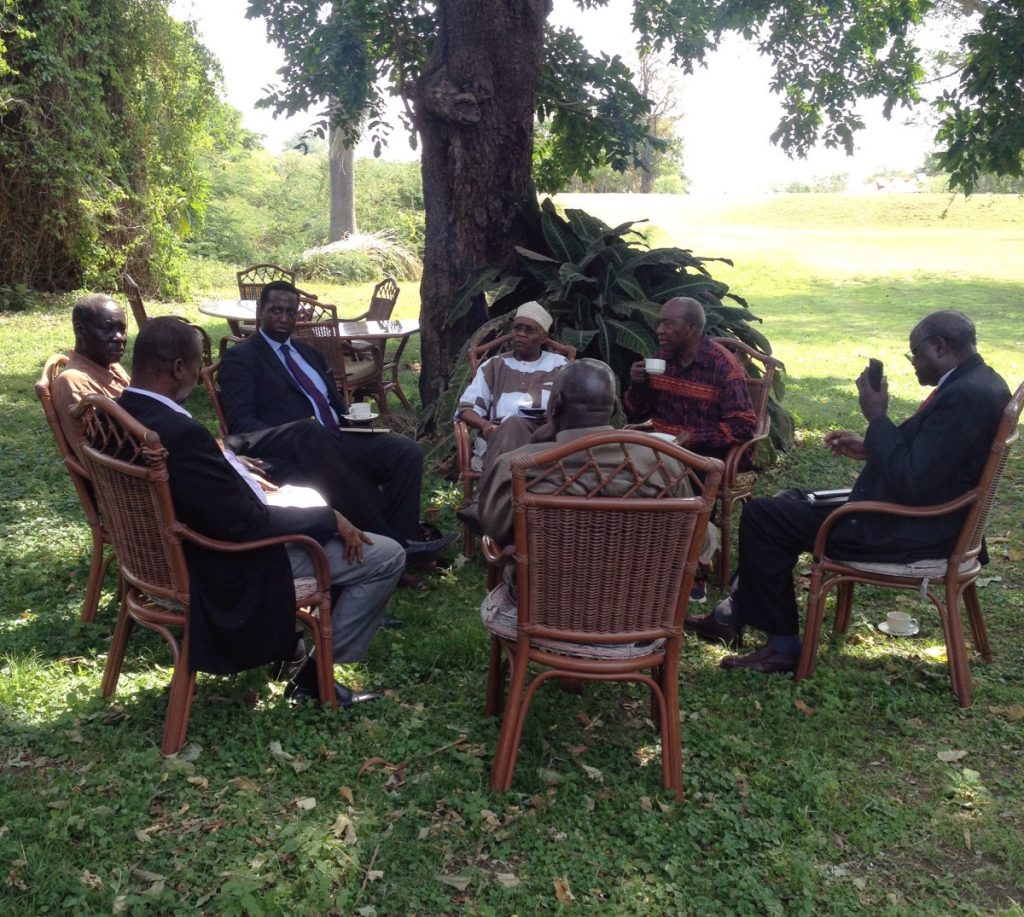
One of the meetings during the dialogue process in Arusha, Tanzania.
From autumn 2014 to January 2015, CMI supported dialogue between the three groupings within the ruling party of South Sudan. In January 2015, the principal leaders of the Sudan People’s Liberation Movement (SPLM) signed an agreement on reunifying the party during a dialogue process in Arusha, Tanzania. This agreement outlined the way forward for the re-unification of the party, including political, organisational and leadership issues.
In autumn 2015, the new Finnish government imposed development aid cuts and CMI had to implement savings (staff reductions, scaling down projects, savings on office premises and other overheads). The cuts, amounting to 1.7 million euros, took effect at the start of 2016.
2016
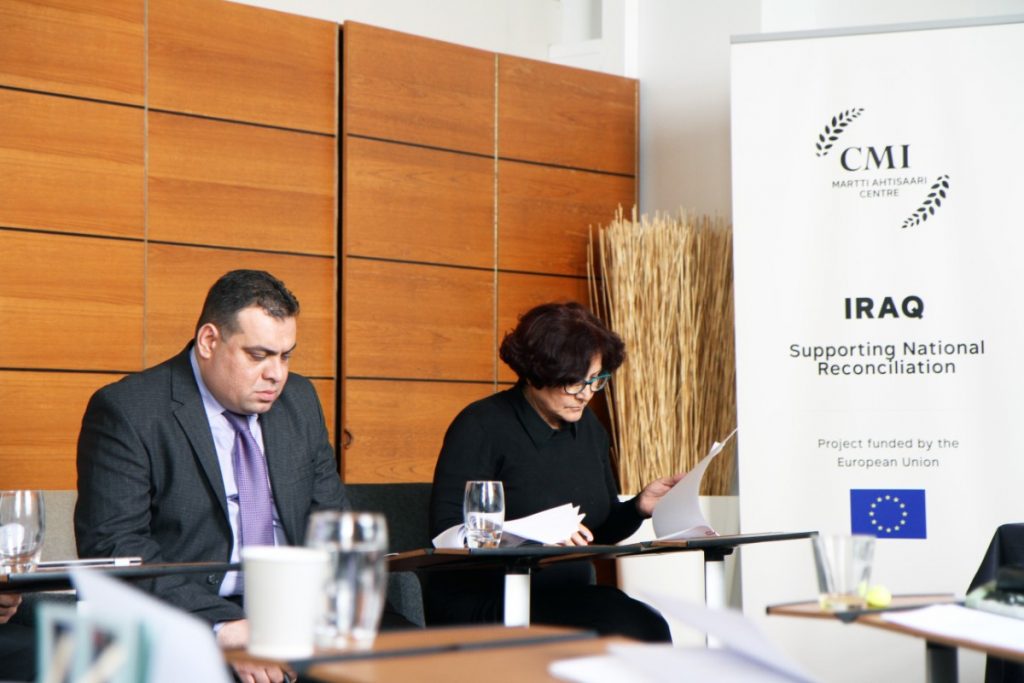
In 2016, CMI invited a group of Iraqis to Helsinki to discuss Iraq’s future and to contribute to develop ideas for a common vision for the country.
With CMI’s active support, Iraqis drafted the National Reconciliation Strategy Draft Document. For the first time since the end of Saddam Hussein’s dictatorship in 2003, Iraqis themselves started shaping a united vision for their country.
CMI started supporting the formal East African Community (EAC)-led Inter-Burundi Dialogue under the auspices of Facilitator President Benjamin Mkapa. Complementing the formal efforts, CMI contributed to keeping open channels of communication between principal Burundian parties, and advanced coordination with key stakeholders.
2017
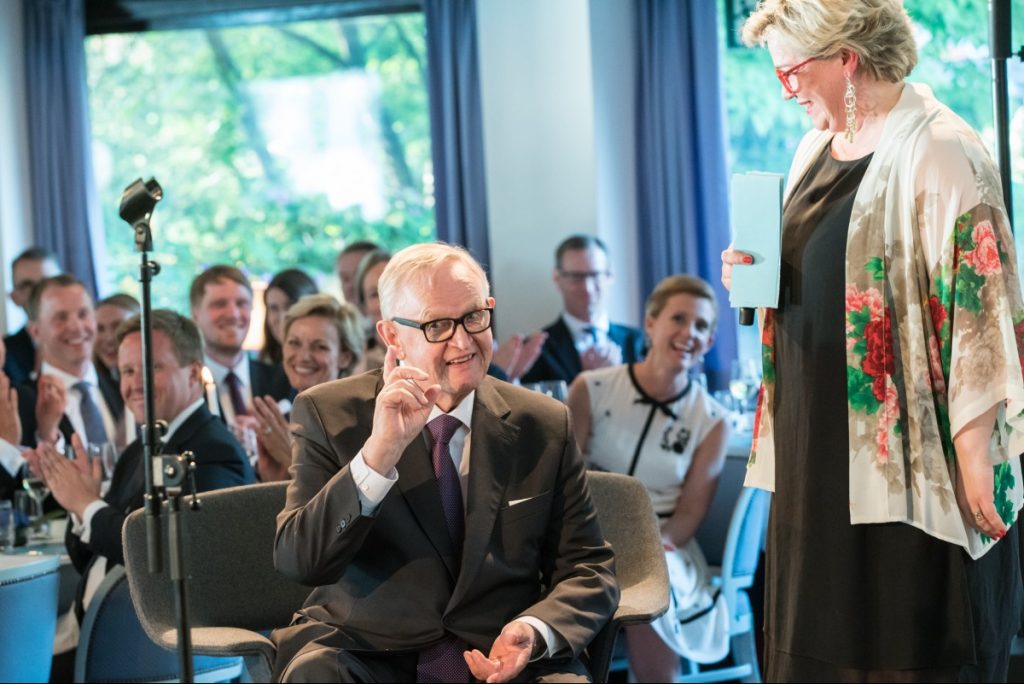
The secret gift was revealed to President Ahtisaari during a celebration to honour his 80th birthday.
The ‘Don’t tell Martti’ campaign for President Ahtisaari’s 80th birthday raised over 600 000 euros for CMI’s conflict resolution work. Ahtisaari was deeply grateful for this birthday present. In his opinion the campaign showed that building peace is everybody’s business in Finland.
CMI supported the creation of the Network of African Women in Conflict Prevention and Mediation, FemWise-Africa.
2018
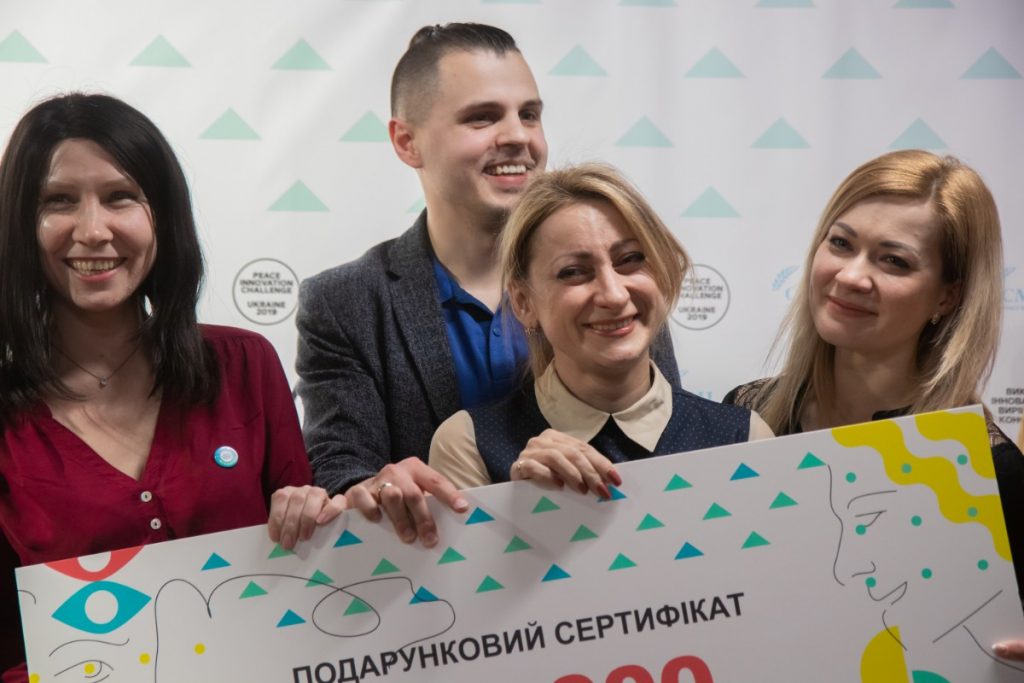
The winners of Peace Innovation Challenge Ukraine.
CMI launched the Peace Innovation Challenge, which was organised in Palestine and Ukraine.
Former Prime Minister of Finland Alexander Stubb started as the new Chair of the CMI Board, when President Ahtisaari left the Board after chairing it since the foundation of CMI. After leaving the Board, Ahtisaari continued working with CMI in an advisory capacity.
2018 marked 10 years since President Ahtisaari was awarded the Nobel Peace Prize.
The Economic Community of West Africa (ECOWAS) and CMI jointly developed Mediation Guidelines for ECOWAS.
CMI facilitated a mediation retreat for the UN, OSCE and EU mediators, their teams and HQ leaders hip in the context of the Geneva International Discussions (GID) on addressing the consequences of the 2008 war in Georgia. President Ahtisaari and Chair Alexander Stubb made inputs at the retreat.
2019
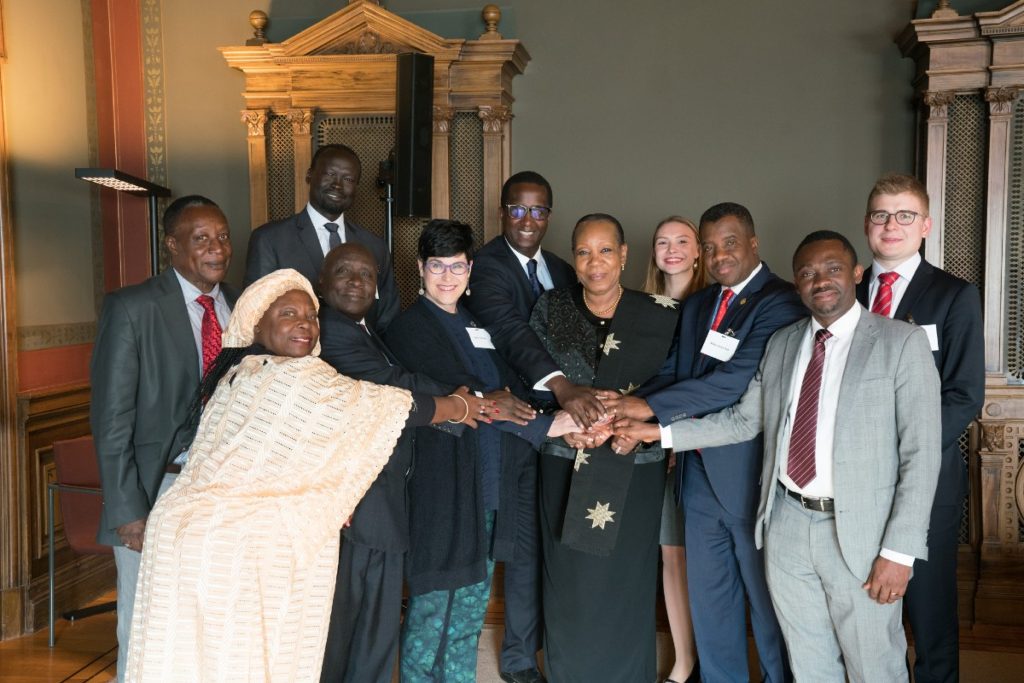
CMI works with the AU and African Regional Economic Communities to foster regional collaboration in the field of peace and security. Photo taken at the National Dialogues Conference in Helsinki, April 2017.
2019 marked 10 years of cooperation with the African Union. This is one of CMI’s longest partnerships, and the strong partnership continues with confidence.
CMI established its first regional team for Asia. CMI has a long history of working in the region, but it was only in 2019 that it established its regional team for Asia. CMI’s key engagement in the region is currently Myanmar, where it supports the development of the ceasefire monitoring mechanism.
2020
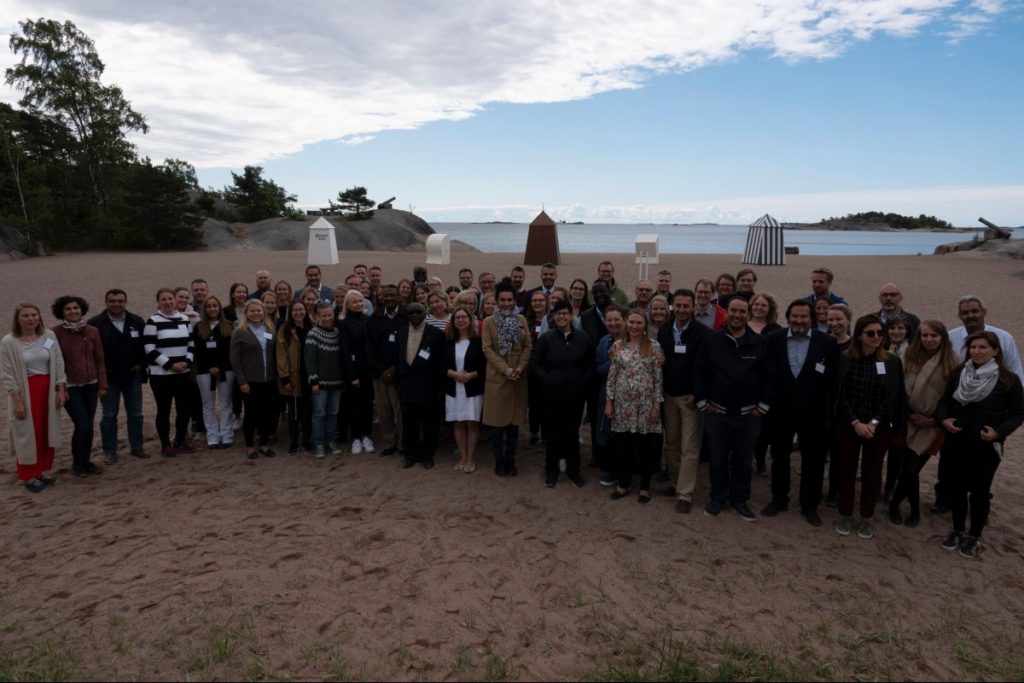
CMI staff pictured during a staff retreat in 2018.
CMI celebrates its 20th anniversary. CMI has some 90 members of staff working on 19 projects worldwide, and has become one of the leading organisations of its kind.